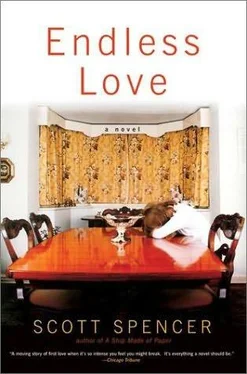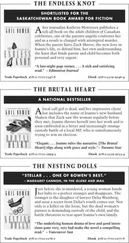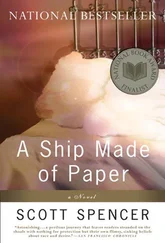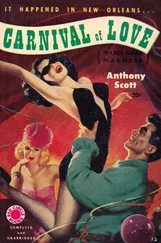Scott Spencer
Endless Love
For Coco Dupuy
I no more wrote than read that book which is The self I am, half-hidden as it is From one and all who see within a kiss The lounging formless blackness of an abyss
How could I think the brief years were enough To prove the reality of endless love?
—DELMORE SCHWARTZ
When I was seventeen and in full obedience to my heart’s most urgent commands, I stepped far from the pathway of normal life and in a moment’s time ruined everything I loved—I loved so deeply, and when the love was interrupted, when the incorporeal body of love shrank back in terror and my own body was locked away, it was hard for others to believe that a life so new could suffer so irrevocably. But now, years have passed and the night of August 12, 1967, still divides my life.
It was a hot, dense Chicago night. There were no clouds, no stars, no moon. The lawns looked black and the trees looked blacker; the headlights of the cars made me think of those brave lights the miners wear, up and down the choking shaft. And on that thick and ordinary August night, I set fire to a house inside of which were the people I adored more than anyone else in the world, and whose home I valued more than the home of my parents.
Before I set fire to their house I was hidden on their big wooden semicircular porch, peering into their window. I was in a state of grief. It was the agitated, snarling grief of a boy whose long rapturous story has not been understood. My feelings were raw and tender, and I watched the Butterfields through the weave of their curtains with tears of true and helpless longing in my eyes. I could see (and love) that perfect family while they went on and on with their evening without seeing me.
It was a Saturday night and they were together. Ann and her husband, Hugh, sat in front of the empty fireplace, on the bare pumpkin pine floor. (How I admired them for leaving their good wooden floors uncovered.) Ann and Hugh, sitting close, paged through an art book, turning the pages with extraordinary slowness and care. They seemed enraptured with each other that night. At times, their relationship seemed one of perennial courtship; hesitant, impassioned, never at rest. They seldom took each other for granted and I had never seen married people whose moments of closeness had such an aura of triumph and relief.
Keith Butterfield, my age, the oldest son, and whose passing curiosity in me had been my original admittance into the Butterfield household, also sat on the floor, not far from his parents, where he fussed with the innards of a stereo receiver he was building. Keith, too, seemed to be moving slower than normal, and I wondered if I was seeing them all through the gummy agony of a dream. Keith looked to be exactly what he was: the smartest boy in Hyde Park High School. Keith couldn’t help learning things. He could go to a Russian movie and even as he concentrated on the subtitles he’d be picking up twenty or thirty Russian words. He couldn’t touch a wristwatch without wanting to take it apart; he couldn’t glance at a menu without memorizing it. Pale, with round eyeglasses and unruly hair, in blue jeans, black undershirt, and beatnik-y sandals, Keith laid his hands on the spread-out parts of the stereo, as if he wanted not to build it but to cure it. Then he picked up a small screwdriver and looked at the overhead light through the mango-colored plastic handle. He pursed his lips—sometimes Keith looked older than his parents—and then he got up and went upstairs.
Sammy, the younger son, twelve years old, was sprawled out on the couch, naked except for a pair of khaki shorts. Blond, bronze, and blue-eyed, his prettiness was almost comically conventional—he looked like the kind of picture little girls tuck into the corner of their mirror. Sammy was somewhat outside the Butterfield mold. In a family that cultivated its sense of idiosyncrasy and its sense of personal uniqueness, Sammy’s genius already seemed to be taking the form of profound regularity. Athlete, dancer, paperboy, bloodbrother, and heart throb, Sammy was the least retiring, the least internal Butterfield; we all really did believe, even when he was twelve, that one day Sammy would be President.
And then there was Jade. Curled into an armchair, wearing a loose, old-fashioned blouse and a pair of unflattering shorts that reached almost to the knee. She looked chaste, sleepy, and had the disenfranchised air of a sixteen-year-old girl at home with her family on a Saturday night. I scarcely dared look at her; I thought I might simply hurtle myself through the window and reclaim her as my own. It had been seventeen days since I’d been banished from their home and I tried not to wonder what changes had taken place in my absence. Jade looked at the wall; her face seemed waxy, blank; the nervous knee jiggle was gone—cured by my banishment?—and she sat unnervingly still. She had a clipboard wedged between her narrow hip and the side of the chair, and she held in her hand one of those fat ballpoint pens that have three separate cartridges, a black, a blue, and a red.
I still believe the statement that gives the truest sense of my state of mind that night is that I started the fire so the Butterfields would have to leave their house and confront me. The trouble with excuses, however, is that they become inevitably difficult to believe after they’ve been used a couple of times. It’s like that word game children discover: you repeat a word often enough and it loses all meaning. Foot. Foot. A hundred times foot, until finally what is foot? But even though the truth of my motive has worn a little thin (and through its diaphanous middle I can detect other possible motives), I can still say that indeed the clearest thought I had when I lit the match was that starting a fire on the porch was somehow a better way of rousing the Butterfields from their exclusive evening than a shout from the sidewalk or a stone against the window—or any other desperate, potentially degrading signal I might make. I could picture them: sniffing the smoke sent off by the pile of old newspapers, trading glances, and then filing out to see what the trouble was.
This was my strategy: as soon as the papers catch fire, I hop off the porch and run down the block. When I’m at a safe distance, I stop to catch my breath and begin strolling back toward the Butterfields, hoping to time my arrival with their emergence from the house. I’m not sure what I planned to do then. Either jump right in and help put out the little fire, or stand transfixed, as if surprised to see them, and hope that Jade or Ann would see me, wave, invite me in. The point was not to allow them to go another day without seeing me.
I don’t recall debating this plan of action. Nerved-out and lovesick, I simply proposed it and then a short time later was lighting a match. I waited for a moment (my legs shaking from their desire to vault off the porch and run like hell) to make certain the fire had really taken hold. The flame lifted the corners of that stack of papers page by page, increasing the depth of its penetration but not the breadth. I could have put it out by stepping on it a couple of times and I came close to doing so, not out of foresight but panic. I remember thinking: This will never work.
The flame, after burrowing through a few layers, at last made its move to the heart of the pile—it seemed to have found the perfect dry bridge to race across. It was still not an impressive fire, by any means. It would not have done for cooking a trout and, at the point I fled and left it to its own nitrous fate, you would have been hard-pressed to toast a marshmallow over such a feeble flame. But the fire had established itself; it was not likely to shrink to nothing at the slightest breeze, nor did it seem destined to extinguish itself. It was real, alive, and I leapt off the porch and onto the tall unkempt grass that distinguished the Butterfields’ patch of lawn. I turned back for a moment to look at the house, gothically eccentric, a New England frame house in the middle of Chicago, then at the softly lighted living room window, still empty of curious faces, and then at the stack of newspapers, gauzy now behind the first sheet of smoke and capped by a rooster comb of flame. And then I ran.
Читать дальше












